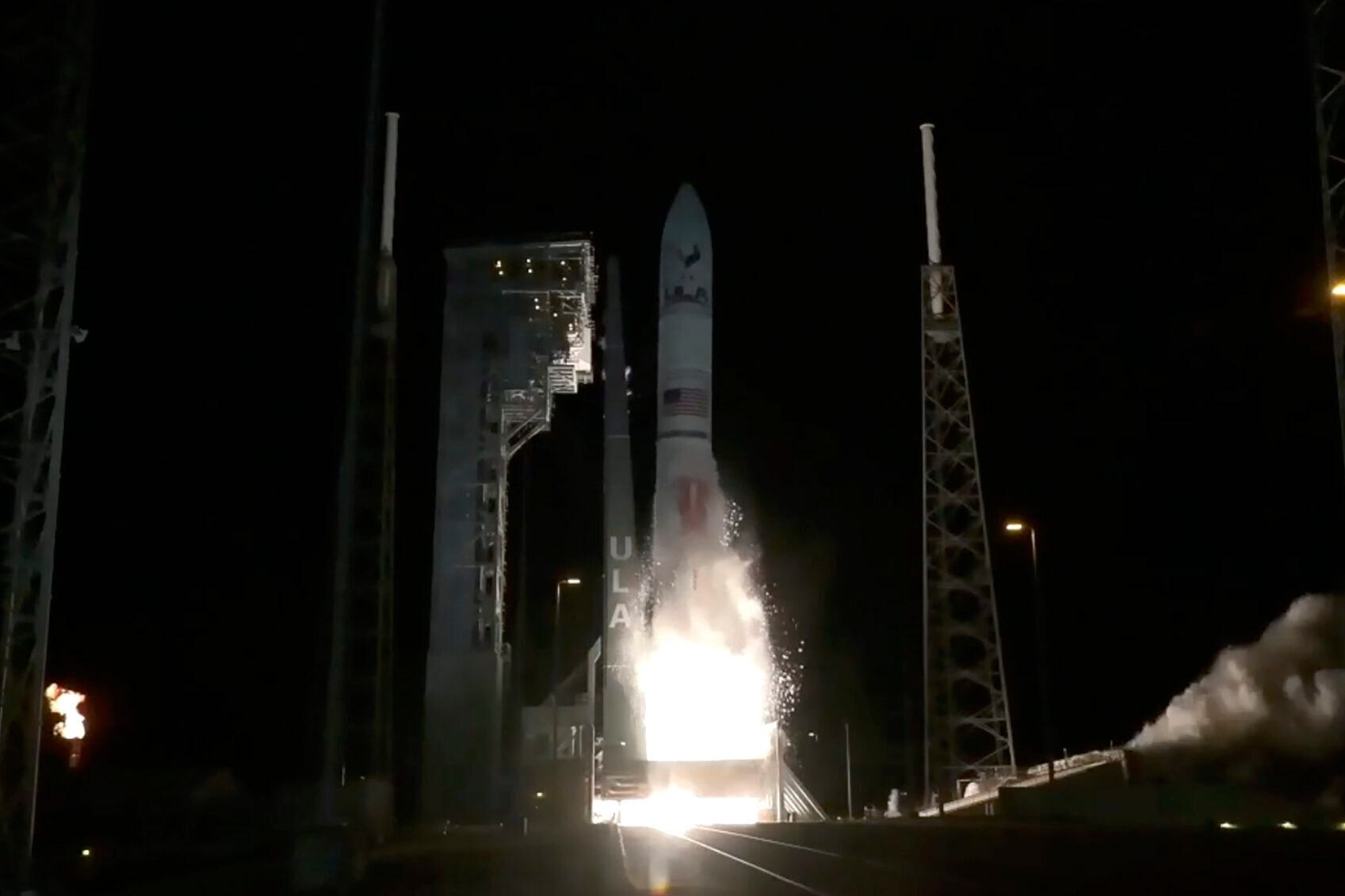United Launch Alliance (ULA) had a successful rocket launch on Monday in Cape Canaveral, Fla., thanks in large part to the efforts of its manufacturing operations in Decatur.
However, after the successful delivery by ULA of the Astrobiotic's lunar lander into orbit, an issue with the lander propulsion system designed by a company headquartered in Pittsburgh could jeopardize the mission.
The rocket blasted off with its payload at 2:18 a.m. Eastern Time, destined for the moon.
"ULA marked the beginning of a new era of space capabilities with the successful launch of its next-generation Vulcan rocket," the company said in a statement. ULA claims Vulcan provides industry-leading capabilities to deliver "any payload, at any time, to any orbit."
The rocket carried Astrobotic's Peregrine Lunar lander and various other payloads. Astrobotic was attempting to be the first private company to land on the moon—a race between them and Intuitive Machines.
Astrobotic claimed that all systems appeared to be in working order after ULA's Vulcan rocket's successful launch and release. However, about seven hours after the launch, problems in the propulsion system became evident. The lander could not maintain the stable sun-pointed orientation required to charge its batteries fully.
Astrobiotic made several attempts to resolve the issue; however, as of their latest press release, they appear to have aborted their moon landing goal.
"The team is working to try and stabilize this loss, but given the situation, we have prioritized maximizing the science and data we can capture. We are currently assessing what alternative mission profiles may be feasible at this time," the release said.
According to the Associated Press, before the flight, NASA's Joel Kearns, deputy associate administrator for exploration, noted, "That while using private companies to make deliveries to the moon will be cheaper and quicker than going the usual government route, there will be added risk."
He stressed that the space agency was willing to accept that risk, noting Monday: "Each success and setback are opportunities to learn and grow."
The United States and the Soviet Union made several successful landings in the late 1960s and 70s, with the United States being the only country ever to have astronauts land on the moon. Most recently, China and India were able to successfully land unmanned landers on the moon in 2023 for the first time. However, Russian and Japanese landers crashed on approach in 2023. No other country besides the U.S. Apollo mission attempted lunar landings with manned spacecraft.
Next month, SpaceX and Intuitive Machines will attempt the same mission and continue the race to become the first privately U.S.-owned companies to reach the lunar surface.
This mission was set to be the first U.S. mission to the lunar surface since the successful 1972 Apollo 17 mission that made Gene Cernan and Harrison Schmitt the 11th and 12th men to set foot on the moon.
1819 News contacted ULA and Astrobotic for more details but has yet to receive a response.
To connect with the author of this story or to comment, email Bradley.cox@1819news.com.
Don't miss out! Subscribe to our newsletter and get our top stories every weekday.










